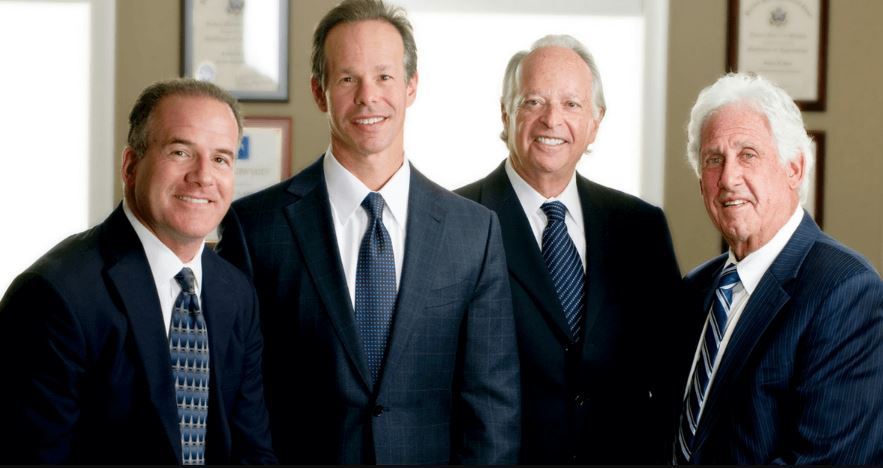Have you ever found yourself in need of a lawyer and felt overwhelmed by the sheer number of options out there? If so, you’re not alone. The legal system in the United States is vast and complex, making it difficult to determine which lawyer is the right fit for you. The truth is, there is no such thing as a “best” lawyer that works for everyone.
However, the good news is that there are plenty of excellent lawyers available. The key is to find the one that specializes in your particular legal issue and is a good match for your personality and budget. In this article, we will guide you through the process of finding the perfect lawyer for you and dispel the myth of a one-size-fits-all “best” lawyer.

Specialization is important when it comes to finding a lawyer.
Just like you wouldn’t want a general doctor performing surgery on you, you wouldn’t want a lawyer who doesn’t specialize in your legal issue. For example, there are lawyers who specialize in family law, criminal law, personal injury law, business law, and immigration law, among others. Each area of law requires specific knowledge and experience.
To find a qualified lawyer in your area, you can use resources such as the American Bar Association, Martindale-Hubbell, and state bar associations. However, it’s important to keep in mind that rankings and reviews can be subjective, and a less-known lawyer with experience in your specific legal issue may be a better choice than a highly-regarded lawyer who mostly handles different cases.
Once you have a list of potential lawyers, it’s important to schedule consultations to determine if they’re a good fit for you. Consider their communication style, personality, and fees and costs.
Remember that the lawyer-client relationship is a two-way street, and you should feel comfortable working with them and confident in their abilities.
Going Beyond the Consultation
If you are looking for a lawyer, there are several resources that can help you find someone trustworthy and experienced.
Consider talking to friends and family who may have had positive experiences with lawyers, checking law school alumni directories, or contacting a legal aid organization if you have financial limitations.
Additionally, don’t be afraid to ask lawyers for references and check disciplinary records. You can also look for awards and recognition from legal organizations and research case results to get a better understanding of a potential lawyer’s expertise.
Beyond the Billable Hour: Exploring Alternative Fee Arrangements
When it comes to fees, traditional hourly billing is a common structure for lawyers, but there are alternative arrangements like flat fees, contingency fees, and limited scope representation that may be a better fit for your budget and case.
Be upfront about your budget concerns and ask if the lawyer offers alternative fee arrangements. Remember to always verify information you find online through independent sources.
Traditional hourly billing is a common fee structure used by lawyers. However, there are alternative arrangements available that may suit your budget and case better. Here are a few examples:
- Flat Fee: A fixed fee agreed upon upfront for a specific service.
- Contingency Fee: The lawyer’s fee is a percentage of any settlement or award you receive. This can be attractive in personal injury cases where there’s no upfront cost, but the lawyer only gets paid if successful.
- Limited Scope Representation: You hire the lawyer for specific tasks within your case, rather than full representation.
- Discuss Fee Options: Be upfront about your budget concerns and ask if the lawyer offers alternative fee arrangements.
Finding the right lawyer is just the first step. Here are some key aspects to foster a successful lawyer-client relationship:
- Clear Communication: Keep your lawyer informed of any updates or developments related to your case. Ask questions and express any concerns you may have.
- Timely Responses: Expect your lawyer to respond to your inquiries in a reasonable timeframe. If communication becomes a problem, address it directly.
- Realistic Expectations: Discuss potential outcomes with your lawyer and understand what constitutes a successful resolution for your case.
Remember, a strong lawyer-client relationship is built on trust and open communication. By following these steps and actively participating in the process, you’ll be well on your way to achieving a successful legal outcome.
Understanding Legal Ethics
Lawyers are bound by a code of ethics that ensures they act in their clients’ best interests. Familiarizing yourself with some basic ethical principles can empower you during your lawyer search and throughout the legal process. Here are a few key points:
- Confidentiality: Lawyers are obligated to keep your communications and case details confidential.
- Conflicts of Interest: A lawyer cannot represent you if they have a conflict of interest, such as already representing the opposing party in your case.
- Candor and Honesty: Your lawyer must be truthful with you and the court regarding your case.
The American Bar Association provides a resource outlining these ethical guidelines.
Leverage Online Resources, But Be Cautious
The internet offers a wealth of information about lawyers and legal issues. Here are some resources to explore, but remember to approach them with a critical eye:
- Lawyer Websites: Many lawyers have websites that detail their areas of practice, experience, and client testimonials.
- Legal Blogs and Articles: Reputable legal blogs and websites can offer valuable insights into specific legal issues. However, ensure the information is current and comes from a credible source.
- Legal News Websites: Stay informed about legal developments relevant to your case by following reputable legal news websites.
Pro Tip: When researching online, look for websites with “.gov” or “.edu” extensions, indicating government or educational institutions, which are typically reliable sources.
The Importance of Cultural Competency
If you feel more comfortable communicating with a lawyer who shares your cultural background or speaks your preferred language, prioritize candidates who meet those criteria. Cultural competency can enhance communication and understanding throughout the legal process.
Many bar associations offer resources to help you find culturally competent lawyers. Additionally, some legal aid organizations specialize in serving specific cultural communities.
Don’t Be Afraid to Negotiate Fees
While lawyer fees can be a significant expense, don’t be afraid to negotiate, especially if you have budget limitations. Be upfront about your financial situation during consultations and explore alternative fee arrangements, as discussed earlier.
Tip: Prepare a budget for your legal fees beforehand to guide the conversation with potential lawyers.
Conclusion: Finding Your Legal Champion
When choosing a lawyer, it’s important to find someone who does more than just handle legal matters. You need a champion who understands your needs, advocates for your best interests, and guides you through the legal process with confidence. By utilizing the resources and strategies outlined in this guide, you’ll be well-equipped to find the perfect lawyer for your unique situation. Remember that the lawyer-client relationship is a partnership, so it’s crucial to choose someone you trust and feel comfortable collaborating with to achieve a successful outcome.






